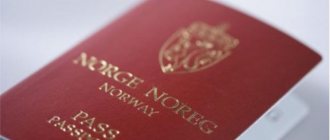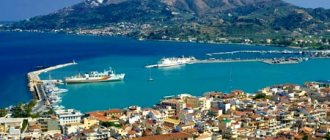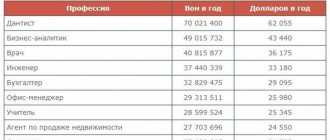For many people, working in Norway is a way to realize themselves in new conditions, receive a salary higher than in the CIS countries and Russia, and also improve their level of English or Norwegian. But not only people with higher education go to the Scandinavian country to work. There are enough vacancies in Norway that offer low-skilled work for Russians, Ukrainians, Belarusians, Kazakhstanis, etc.
The state provides itself through the production of oil and gas and the sales of these minerals abroad, and is also the world's first country in the production of electricity. In addition, Norway has many sea fishing ports that provide people without education with jobs that do not require qualifications.
Norway is a country with a high standard of living because the salaries here are high. Good earnings are the main motivation for those wishing to move to Norway.
Jobs in Norway available for residents of Russia and CIS countries
Seasonal work
Very often people come to Norway to work for a season. To collect berries, fruits and vegetables for the farm, or to clean the house or take care of children in any Norwegian family. These vacancies are very popular among residents of the former CIS countries and the Russian Federation.
To obtain such a job, a potential employee must be 22 years old, have some experience in the profession in question (if it is caring for children or cutting fish), and have at least intermediate knowledge of English, Norwegian or German.
A contract is concluded with the employee for a period of three to twelve months. Salaries average between $500-600 per week. Often even schoolchildren go to a farm in Norway during the summer holidays.
Foreign applicants are provided with medical insurance and housing. The salary is about $2,000 per month.
If this is a family job, then the contract is for one to two years.
Low skilled work
Most of the low-skilled work comes from maintaining oil platforms, of which Norway has plenty. Personnel are always needed here. The most popular vacancies offering work without a “crust”:
- Helper worker;
- Worker on the deck of an oil platform;
- Painter's assistant;
- Cleaner/cleaner;
- Steward.
Other vacancies not related to working on the platform are:
- washing dishes;
- customer service in the store;
- cleaning of premises, etc.
Interesting! The responsibilities of the helper on the platform, in addition to cleaning, providing employees with materials, and unloading food, include operating a winch-type crane. No special knowledge is required for this work, since the entire process is controlled by a special remote control.
There is an opinion that only men can get low-skilled jobs in Norway. Basically, that's true. The majority of applicants are male, but there are also quite a few women. Girls are hired for positions such as steward, painter's assistant, cleaner, etc.
A steward is not only an assistant in the kitchen, but also responsible for placing new workers on the platform.
All other vacancies involving hard, low-skilled labor require men.
Jobs requiring qualifications
Specialists with higher education in the field of oil and gas production try their hand at Norway. An additional condition for employment is knowledge of English or Norwegian at an intermediate level, work experience in the specialty, and reviews of the applicant from previous places of work.
Often, specialists who have already completed a master’s degree in Norway for a couple of years are hired to work in the northern country, and then they were invited to work.
Vacancies offering highly qualified labor:
- Drilling crane operator;
- Engine room specialist;
- Electrical installation specialist;
- Driller.
Common vacancies and salaries
Popular job vacancies in Norway for Russians in 2021 include:
- IT professions - programmers, system administrators, testers;
- doctors - mostly highly specialized;
- teachers;
- employees of the oil and fish processing industries;
- builders;
- representatives of the hotel and restaurant industry;
- sellers;
- cleaners;
- social workers.
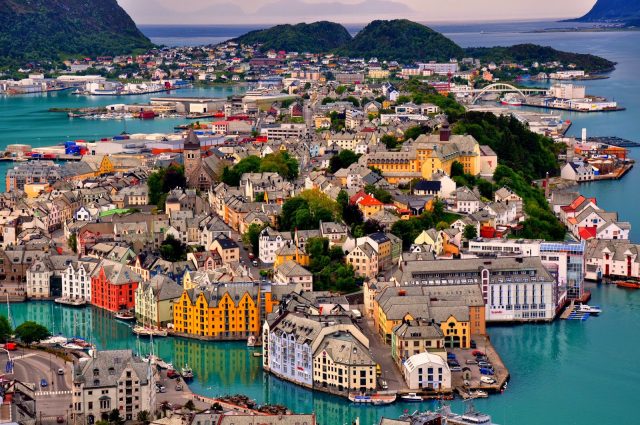
The average income in Norway is 4,750 euros per month (before taxes).
Table 1. Salaries by selected industries (before taxes)
| Industry or profession | Monthly income, euro |
| Mining | 6.5-7 thousand |
| IT sphere | 5-8 thousand |
| Oil Platform | 4.5 -9 thousand |
| Construction contractors | 4 thousand |
| Leadership positions in construction organizations | 6-9 thousand |
| Financiers | 6-12 thousand |
| Scientific branch | 5-6 thousand |
| Service sector | 2-3.2 thousand |
| Doctors | 4.6–5.2 thousand |
| Teacher | 4.4-4.8 thousand |
| Nanny | 3.2 thousand |
| Drivers | 3.1 thousand |
For seasonal employment, the average rate is from 11 euros per hour, fish production and processing is paid at the rate of 19-20 euros/hour, agriculture - 14 euros/hour.

Options without the need for language knowledge
It is quite difficult for a Russian, Belarusian or Ukrainian to get a job in Norway without knowing the language (local or English). A citizen of the CIS will be offered hard or low-skilled work: in the security service, on shift, as a cleaner.
Without knowing the language, you can get a job in Norway as a welder, carpenter, plumber, tinsmith, or fitter.
Seasonal employment and shift work
Seasonal work in Norway involves agricultural activities, and also includes vacancies for a housekeeper, nanny for adaptation and assistance to children, activities with them during the holidays. Labor relations are regulated by a contract, which is drawn up for 3-12 months. Shift work in Norway is offered by fish processing plants and oil platforms.
The company provides food, medical insurance and housing to the employee. Requirements for personnel are knowledge of at least basic English and age over 22 years. The average income from seasonal and rotational employment is about 500 CZK weekly.

Working at a fish factory
According to reviews, working in a fish factory in Norway does not require high qualifications, but is physically difficult.
In-demand vacancies:
- sorters;
- packers;
- storekeepers;
- packers;
- movers;
- salting staff.
Persons aged 18-55 with or without basic knowledge of the local language and English are accepted for positions; experience and education are not taken into account.
Jobs on oil and drilling platforms
Difficult working conditions are typical for working in Norway on oil platforms as a painter, electrician, driller, laborer, and so on. For specialties with a qualification, its confirmation by passing an exam is required (in the absence of a diploma from a European university). Practicing training.
Compliance with health and age standards is required (up to 55 years for men, up to 50 for women). The employer is provided with a certificate from the medical board confirming the absence of serious illnesses.

Drivers and truckers
To work as a driver in Norway, you need a license category CE, C, D and practice. Persons over 22 years of age without health problems are considered. Working as a truck driver in Norway involves not only the functions of a carrier, but also a loader.
Housing, food, and health insurance are provided by the employer. The activity is often seasonal, and vacancies are common in fishing enterprises.
Employment in the construction industry
To receive social guarantees, the applicant draws up a contract with the employer. He is provided with free housing, food, and medical insurance. Basic language knowledge is important, for this a person undergoes a special course.
The work week consists of 37.5 hours, overtime work is paid with an increasing factor. Construction worker is the most profitable job in Norway for Russians and migrants from other countries.
Doctors of various specialties
To work in medical institutions, doctors must confirm their qualifications. In this case, knowledge of English is important. It is also necessary to obtain a residence permit from the department for interaction with foreigners.
The likelihood of employment also depends on specialization. Radiologist positions are in high demand.

Work on ships
Admission to the positions of winch mechanic, electrician, mate and others is carried out with the mandatory knowledge of the local or English language by the candidate. It is important to have no health problems, criminal record, alcohol or drug addiction.
Social guarantees are provided in full. Income ranges from 2.5 to 6 thousand euros monthly.
Other employment
Other common work options in Norway include social employment. Migrants are hired as housekeepers and nannies. Social workers with elderly people, disabled people, and “problem” children are also in demand.
Requirements are knowledge of spoken local or English language and experience.
Visas and work permits. How to legally get a job in Norway
To apply for a work visa, you must obtain a work permit. The application is submitted through the service selfservice.udi.no. The following documents are attached to the paper:
- Color photographs 3 × 4 cm.
- A copy of each page of both civil and foreign passports.
- A contract entered into between an employer and an employee. It must specify working conditions, place of work, salary, shift period, and length of the working day.
- Confirmation of company registration in the unified register.
- Confirmation that the employee will be provided with housing for the entire duration of the contract concluded with him.
Interesting! If the contract with the employee is concluded for a period not exceeding three months, and the employee himself is highly qualified, there is no need for a work permit.
Ways to find work in Norway without intermediaries
A large percentage of available vacancies cannot be found in the public domain, since here the employer resorts to the proven method of connections and recommendations. Foreign potential personnel are deprived of the opportunity to find work in this way. Therefore, it is necessary to use open sources of information, which are often updated on the Internet.
Every person who wants to move to Norway to work should first go to the website of the Norwegian labor exchange nav.no. It is here that all available vacancies available in the country are posted, and useful information that will be useful for further employment is collected.
Other sites for finding work in Norway:
- Finn.no;
- Jobbnorge.no;
- Careerjet.no.
If you set the goal of sending your resume to an employer directly, rather than through job search sites, your chances of getting a vacancy will increase. Therefore, it is worth looking for official resources of companies that are close to the applicant in their field of activity.

To find the company you need, you need to seek help from the online directory gulesider.com, which provides a list of all European companies.
Another good job search option is to look at local newspapers. The most popular print publication in the Scandinavian country is Aftenposten.
Monitoring social networks related to finding work and moving to Norway is a great way to learn from migrants who have already completed the job search in the country and are now sharing their experiences. In these sources of information you can find a lot of new and interesting things for yourself, get an opinion about a particular job, or even find a specific job offer.
How important is it to know Norwegian?
The only official language in Norway is Norwegian. Almost all native Norwegians can communicate in English to one degree or another. The Norwegian language is very difficult to learn for Slavs who are accustomed to communicating in Russian, Ukrainian or Belarusian.
Therefore, they should not hope that they will be able to master Norwegian very quickly, like, for example, Polish. Knowledge of a language sometimes plays a key role in finding a job. The local employer will want to communicate with the job applicant in person, be it directly in Norway or remotely via Skype. At best, the conversation will be in English.
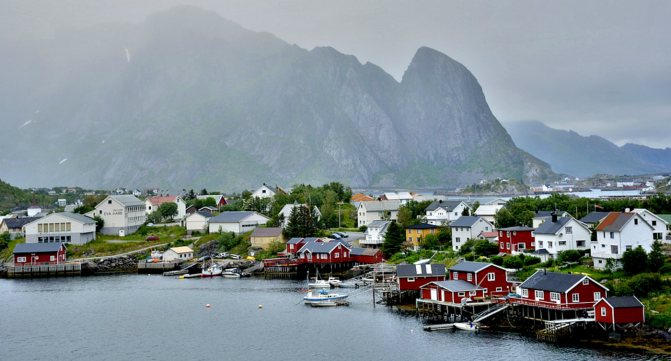
When applying for a job that requires high qualifications, without knowledge of Norwegian you should not even try to fill the advertised vacancy. The only exception would be specialists in the field of IT technology, for whom it is enough to know a few common Norwegian phrases and have a good command of English. For others, an official certificate of knowledge of Norwegian is usually required.
You can learn the basics of Norwegian at language courses in your country of residence. Of course, it is still worth looking for such a school, since Norwegian is not very popular and is in no way one of the languages of international communication. You can also enroll in courses directly in Norway by applying for enrollment online.
According to Norwegian law, a participant in language courses is considered to be a student. Therefore, he has the opportunity to work at least twenty hours a week without obtaining a work permit, as well as to take advantage of some benefits provided for Norwegian and foreign students.
The duration can be up to a year, the average cost of a one-year language course in Norway will be about 9 thousand euros, not taking into account payment for accommodation. Much in this case depends on the city and region where they are held.
The need to speak Norwegian is directly proportional to its use in everyday work. Therefore, it is not at all necessary for representatives of low-skilled labor to have a perfect command of this language; it is enough to know it (at least with a stretch) at the communicative level.
The same cannot be said, for example, about doctors or university teachers (at Norwegian universities, a significant part of the teaching staff are not citizens of the Kingdom and are invited from abroad).
Finding work in Norway through agencies
If you don’t want to look for a job yourself, you should turn to recruitment agencies for help. They will not only find a job for their client, but will also provide recommendations to the employer and evaluate the qualifications of a potential employee of the company. Of course, recruiting agencies will take a certain amount of money for their services. On average, employment agents charge 10-30% of a person's annual income. Agencies help with finding both high-skilled and low-skilled jobs.
The most popular Norwegian recruitment agency websites are:
- Randstad.no;
- Adecco.no;
- academicwork.no.
Work in Norway at a fish factory
One of the most popular jobs for migrants is “fish factory worker.” There are the following specialties that a visitor can apply for:
- Packer;
- Packer;
- Warehouse worker;
- Loader;
- Worker on a conveyor belt;
- Finished product stacker.
If a potential employee is over 17 and under 55 years old, he has every right to apply for the profession described above. The advantage of the job is that it does not require knowledge of English or Norwegian. The only negative is the constant unpleasant smell that permeates the fish factory. But it's tolerable.

The salary ranges from 12 to 15 euros per hour. The employee works 5 days a week for 7 hours (yes, Norway is famous for its short working hours). If the employee wants, he can also go out on Saturday. Sunday is a day off for everyone without exception. Salaries arrive on the card once every two weeks.
An important fact: the employer bears most of the travel costs to Norway and back.
Work Visa
After signing the employment contract, you should prepare the necessary package of documents and submit them to the Norwegian diplomatic mission in your country.
To obtain a work visa, you must submit a standard set of documents, which includes a passport, health insurance, proof of solvency, and you will also need to submit an employment contract and a work permit obtained from the Norwegian Ministry of Labor by the employer.
The fact is that obtaining a work permit for your employee falls entirely on the shoulders of the receiving party. Before contacting the diplomatic mission, you must register on the website of the Norwegian Immigration Service. There you can then find information about the time when Norwegian representatives are ready to accept the applicant.
The time it takes to make a decision on issuing a work visa can be up to one month. Even if the answer is negative, the applicant will inform about it. A work visa is issued for a period of 3 months to a year. Its cost is just over 390 euros.

For temporary work, a visa category C is issued, which does not provide for extension within the country
Visa conditions depend on the type of work. Temporary employment does not imply its extension and obtaining a residence permit. If the contract is long, after crossing the Norwegian border for 8 calendar days, you should contact the migration office and receive a residence permit card.
Before the expiration of the residence permit, you should contact the Kingdom's immigration service in advance. The cost of renewal will be 190 euros. It is recommended to apply at least a month in advance, since if the document expires, your very presence in Norway will become illegal. And you will have to go through the entire procedure for obtaining a work visa from scratch.
Work in Norway on oil platforms
Every third migrant who sets out to find work in the Scandinavian country in question aims to get a job on an oil platform. Since there is a shortage of oil in Europe, employees in the oil industry are in great demand. This applies to both high-skilled and low-skilled work.
Often, travel to work, health insurance and meals are fully paid for by the employer.

Wages in the oil industry are the highest in the country. For highly qualified specialists, it is more than 8,000 US dollars per month. Shift fees range from $200 to $400.
They pay such a lot of money not only because Norway is a country with a high standard of living, but also because the employee will have to work in unfavorable conditions: low temperatures, strong cold winds, storms, high humidity.
Low-skilled professions are paid 4-5 thousand dollars.
People with higher education have the best chance of finding a job, but they also hire well electricians, welders, and mechanics who have extensive work experience, preferably with equipment from Europe.
A potential employee with a higher education will need to confirm their qualifications by passing an exam in their profile in Norwegian or English.
The person should not have any chronic diseases, criminal records, or drug addiction.
Shifts range from 20 to 180 days, depending on the contract. The platforms have all the necessary conditions for life. Employees live in a two- or four-bed room and eat three times a day. The diet includes vegetables, fruits, and meat.
Features of employment

Immigration to Norway with the aim of subsequently obtaining citizenship of this country attracts both highly qualified specialists and those who cannot confirm their “uniqueness”.
When deciding to leave your homeland, you need to carefully weigh all the pros and cons, since finding a good, well-paid job with the prospect of career growth in Norway is very difficult.
So, today Norway needs:
- IT specialists.
- Qualified doctors of a narrow specialty.
- Engineers.
- Seasonal workers.
- Nannies.
- Specialists working with children and adolescents.
- Workers on oil platforms.
- Workers at fish processing plants.
The country is developing the oil and gas industry, as well as fishing. A very large segment of the Norwegian economy is the service sector. It is in this area that most migrants work.
Working as a driver in Norway
It is quite easy to get a job as a driver in Norway. All that is required of a candidate for the position is:
- basic English or Norwegian (sometimes Spanish is required);
- driver's license to drive a car or bus (depending on the vacancy);
- absence of chronic diseases, drug addiction and criminal record;
- age - from 20 years.

Each employee undergoes paid three-month training and is provided with free travel on all types of public transport.
The driver's salary ranges from 3-4 thousand dollars per month. The work takes place in two shifts of 7 hours.
Working on ships in Norway
The requirements for working on a ship are no different from the vacancies above. The only condition: every worker is required to know English or Norwegian, regardless of qualifications. The ships require mechanics, electricians, mechanics, and captain's assistants.
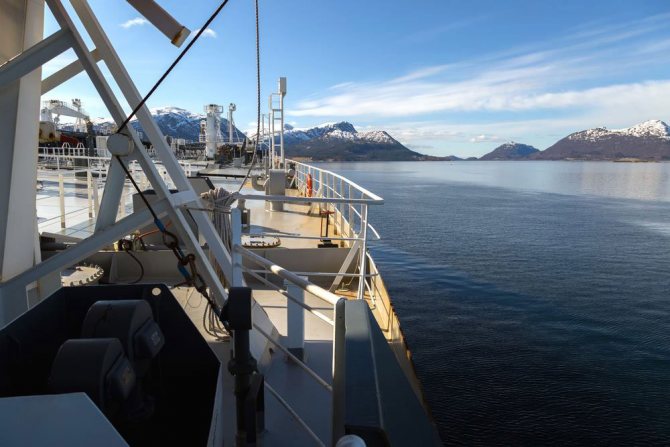
The salary ranges from 3 to 6 thousand dollars per month, depending on the qualifications of the person.
The employee must not have a criminal record, chronic illnesses, or addiction to alcohol or drugs.
Working conditions on board the ship are comfortable. Employees live in either a 2- or 4-bed cabin. They feed three times a day. The diet includes all the substances and vitamins necessary for the body.
